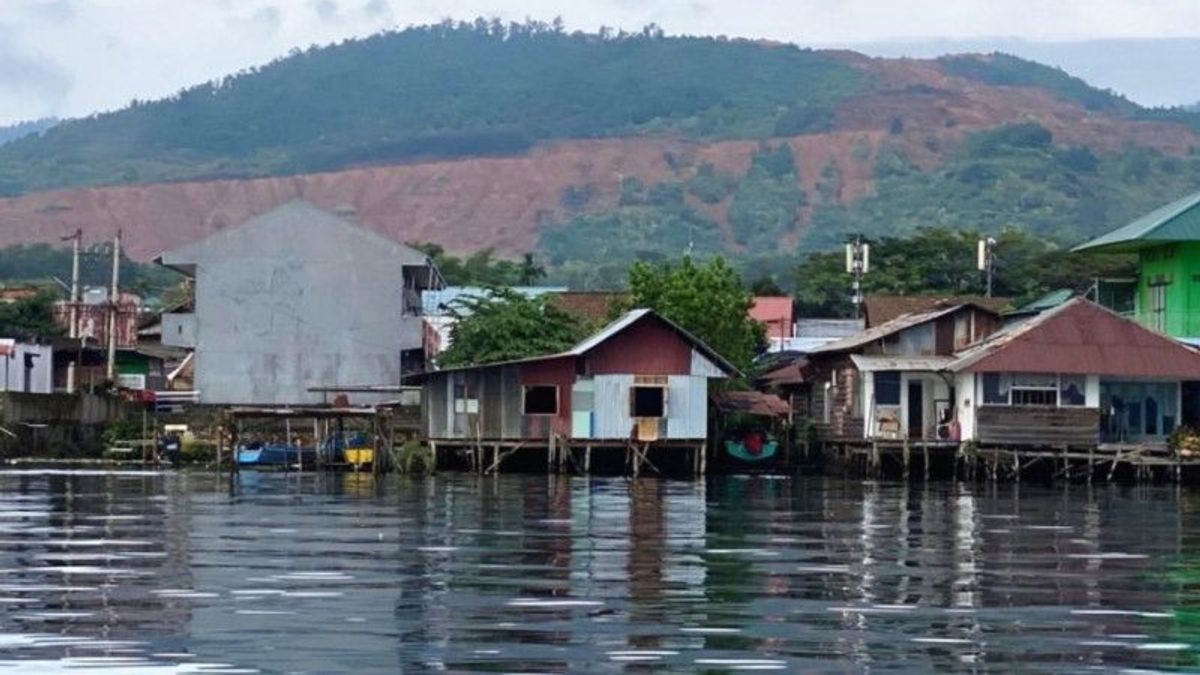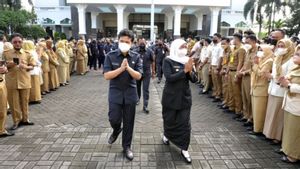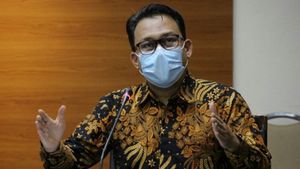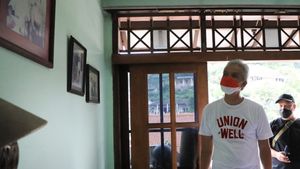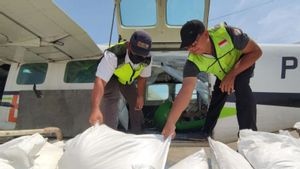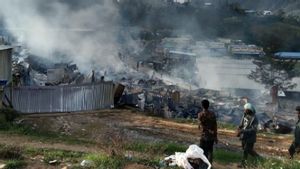MAKASSAR - The Forum for the Environment (Walhi) noted that the forest area in the East Luwu Regency (East Luwu Regency) Province, South Sulawesi, has been degraded or lost thousands of hectares of forest cover due to being pounded by nickel mining activities for more than a decade.
"Forest cover in East Luwu Regency continues to be eroded, at least 41 thousand hectares of forest cover have changed functions from 2009 to 2020. The loss of forest function is the starting point for an ecological disaster to occur in East Luwu Regency", said Executive Director of Forum for the Environment (Walhi) of South Sulawesi, Muhammad Al Amin in Makassar, Antara, Monday, December 27.
Walhi data is based on the source of the National Forest Monitoring System of the Ministry of Environment and Forestry (KLHK) through a chart of changes in forest cover area in East Luwu Regency, since 2009, 2014, and 2020.
In detail, 2009 data recorded, the area of forest cover in the district is still 428 thousand hectares. Then in 2014, it was reduced to an area of 412 thousand hectares, until 2020, it continues to be eroded now only an area of 387 hectares. If calculated for 12 years of nickel mining activities in East Luwu Regency, 41 hectares of forest cover has been lost.
If you look at the data, he said, the expansion of nickel mining and the destruction of people's living spaces continues. The practice of mining activities in Indonesia, especially in East Luwu Regency, has always been close to human rights violations.
In fact, in the early stages of determining the location of a mining business permit, decision-making on mining areas has never been carried out in a participatory manner together with indigenous peoples or local communities who have previously inhabited the area.
The dissemination and consultation carried out by mining companies, said Amin, was allegedly only limited to fulfilling the requirements to obtain permits from the government. The next process, the determination of the mining concession area through a Mining Business Permit (IUP) is issued, but it is considered to rob the local community of land rights.
"As in the case of the land grabbing of the Karunsi'e indigenous people, the northern area of the PT Vale Indonesia concession. The customary land managed by the community is claimed to belong to the company under the pretext of IUP. Of course, this triggers human rights customers, resulting in violent practices, intimidating the authorities against the indigenous people there", said Amin in a virtual meeting of the 2021 WALHI Year-End Notes in the Sulawesi region.
SEE ALSO:
In addition, there are allegations of environmental pollution due to the operation of several nickel mining companies in South Sulawesi. From the investigation, the facts on the ground are suspected that waste disposal in the form of ex-mining sediment, sulfur, or hazardous substances in the ecosystem that is the source of people's livelihoods, is dumped in lakes, rivers to the coast and sea.
For the impact of nickel mining activities for more than a decade, Amin explained, showing the poor governance of nickel mining in Indonesia, especially in East Luwu Regency. The rate of deforestation and human rights violations also shows an increasing trend.
"This is clear evidence. For this reason, the government is asked to immediately stop the issuance of new IUPs in Sulawesi, and review the mining permits issued. The most important thing for the central and regional governments is to save and protect the forest landscape and people's lives on the island of Sulawesi", said Amin emphasized.
The English, Chinese, Japanese, Arabic, and French versions are automatically generated by the AI. So there may still be inaccuracies in translating, please always see Indonesian as our main language. (system supported by DigitalSiber.id)
